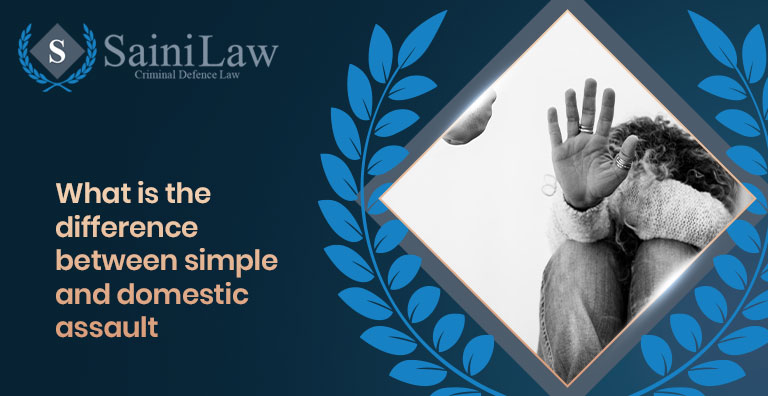Domestic assault is among the most sensitive and challenging issues in Canadian law. Any individual who has experience with charges related to domestic assault can tell you it is a painful situation.
An assault is an application of force by one person on another without the consent of the latter. Assault does not even require actual contact to take place. Victims of domestic assault may include girlfriends, boyfriends, domestic partners, spouses, and family members. While most people associate domestic assault charges with physical violence, they may also include aggressive behaviours like stalking.
Assault of any kind is serious. However, not everyone understands how these charges work. This can lead people to have their partner arrested in the heat of the moment.
Everybody should know how to identify domestic assault. So, Harpreet Saini, a leading assault lawyer in Brampton, has answered some frequently asked questions about it. Hopefully, this information will help clients replace anxiety with insight.
Let’s get started.
Domestic Assault FAQ: An Assault Lawyer in Brampton Answers Your Questions
Find answers to common questions related to domestic assault in Ontario.
1. Can domestic assault charges be dropped in Ontario?
No lawyer (including me!) can guarantee that your domestic charges will be withdrawn. In fact, it is increasingly rare and difficult.
That said, legally, it is possible for any criminal charge to be withdrawn or dropped, even robbery and murder. It is at the discretion of the Crown Attorney to drop domestic charges. Typically, the following types of cases may be eligible to be withdrawn in Ontario by the Crown Attorney:
- Charges where the alleged victim did not sustain any injuries
- Violence committed by first-time offenders or minors
- Charges where there is a lack of evidence
- Acts of violence committed by people dealing with mental health issues
- Charges where the public interest would not be served
Your best bet is to have an assault lawyer in Brampton review the circumstances and evidence surrounding your case. This will help them determine if there is a basis upon which the Crown Attorney can withdraw the charges at their discretion.
2. What is a domestic no-contact order?
This order prevents the spouse who allegedly committed the crime from communicating with the alleged victim. It can be imposed by the courts or police and is standard in domestic assault cases. A no-contact order is most often paired with a radius condition that prevents the charged spouse from going near the victim or their house. The radius condition often contains exceptions related to the retrieval of property. The no-contact order can be extended to family members, including children, and individuals present when the incident happened.
3. What is the difference between simple and domestic assault?

Simple and domestic assaults are not always the same thing. For instance, even when there are two similar cases of physical assault, one defendant may face domestic assault charges while the other faces simple assault. It comes down to the defendant’s relationship with the alleged victim.
So, an individual facing a domestic assault charge will have legally committed an assault on an intimate partner, dependent, or child. Although the crimes may seem similar in terms of execution, individuals charged with domestic assault face stricter penalties.
4. What should you do when charged with domestic assault?
When facing domestic assault charges, it is vital for the defendant to contact an experienced and reliable assault lawyer in Brampton to represent them. Remember, even before they are proven guilty, those charged with domestic assault are viewed as a high risk to those around them.
If you are denied bail, you will have to wait for the trial in prison, which will jeopardize your ability to remain employed. There is also a social stigma surrounding domestic assault charges.
However, with the right lawyer, you will have the counsel and support you need to process this emotionally difficult situation. Plus, they will help you explore your options, making it vital to hire one as soon as possible. It will get you one step closer to obtaining the best possible outcome.
5. What is a conditional discharge?
A conditional discharge is similar to an absolute discharge, since there needs to be a finding of guilt. It falls under the Canadian Criminal Code and is a type of discharge that can be imposed for various offences, but no conviction is registered. However, there are some conditions that the person at-fault must follow, and the conditions come in a probationary order.
Domestic assault charges can be overwhelming and come with social stigma. By hiring an experienced assault lawyer in Brampton, you better your chances of having your charges dropped, although, again, there are no guarantees and it is increasingly difficult to get domestic charges withdrawn. If you or someone you know is facing domestic assault charges in Brampton or nearby cities, contact Saini Law to increase your chances of a successful outcome.

